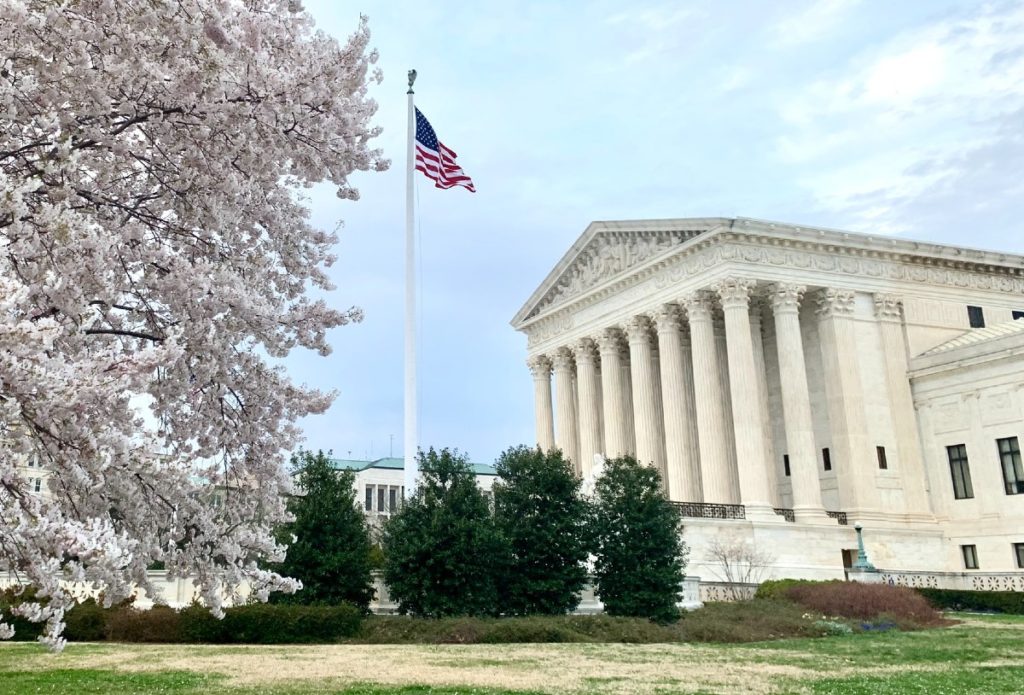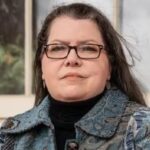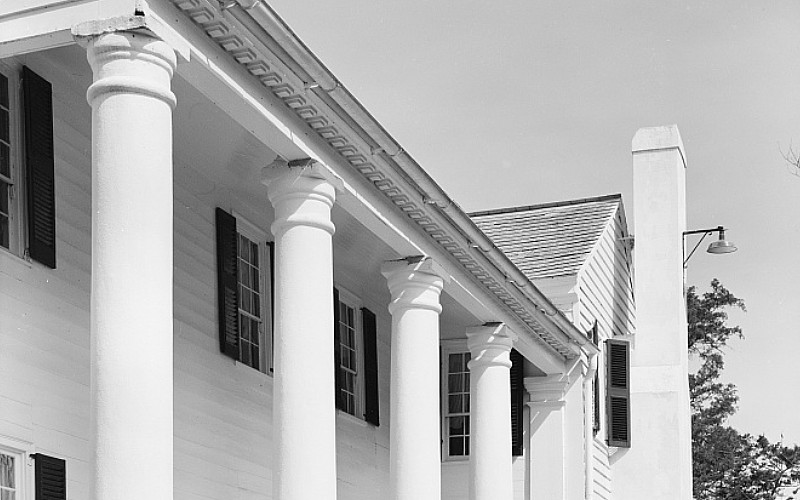STATEHOUSE REPORT | ISSUE 23.51 | Dec. 20, 2024
BIG STORY: Here comes a busy 2025 legislative session
MORE NEWS: High court to hear case on defunding Planned Parenthood
LOWCOUNTRY, Ariail: Most wonderful time of the year
BRACK: How hope can grow in an age of discontent
SPOTLIGHT: AT&T
MYSTERY PHOTO: Columns
FEEDBACK: On voting in schools and on writing well
Here comes a busy 2025 legislative session

By Jack O’Toole, Capitol bureau | South Carolina legislators prefile hundreds of bills every year ahead of the January session.
Some are serious bills, filed by serious legislators with serious plans to get them passed. Others are the political equivalent of a Hail Mary in football – thrown up with more hope than confidence. And a few are pure “message bills,” offered to get attention or make a point, but with no hope of even getting a committee hearing.
Here are a few of each kind that have caught the City Paper’s eye heading into 2025.
Bills with popular support
Several bills currently have popular support or are new ideas on major issues that may get serious consideration during the 2025 session, including:
School vouchers (S. 62): After seeing two private school voucher plans struck down in the S.C. Supreme Court due to the state constitution’s prohibition against using public funds to benefit private schools, supporters are now proposing to use state lottery dollars to fund the program. Under the bill, families making up to $187,000 would be eligible. Primary sponsor: Sen. Greg Hembree, R-Horry.
Raise teacher pay (S. 30): Higher teacher salaries are a bipartisan priority heading into the next session, with the S.C. Education Department already requesting a new $50,000 minimum, up from $47,000 this year. Going even further, and more of a stretch, is S. 30, which would require teachers “to be paid the average national teacher salary instead of the Southeastern average.” The national average is currently $71,699. Primary sponsor: Sen. Karl Allen, D-Greenville.
Hate crimes (H. 3039): Named the “Sen. Clementa C. Pinckney Hate Crimes Act” in remembrance of the nine parishioners lost in the hate-fueled massacre at Emanuel AME Church in Charleston in 2015, the law would stiffen penalties for crimes motivated by racial, religious or other animus. Previous versions of the bill have passed the House in each of the last two sessions before dying in the Senate without a vote. South Carolina and Wyoming are currently the only states without a hate crimes law on the books. Primary sponsor: Rep. Wendell Gilliard, D-Charleston.
Nuclear restart (S. 51): The 2017 collapse of the V.C. Summer nuclear power project sent several utility officials to prison and left ratepayers on the hook for $9 billion. After a state panel determined earlier this year that the project could in theory be restarted to allow the state to generate much-needed power, this bill would direct state-owned utility Santee Cooper to invite proposals from private companies to complete the project using non-public funds. Primary sponsor: Sen. Tom Davis, R-Beaufort.
Diversity, equity and inclusion ban (H. 3184): With university DEI departments under fire across the country, this legislation would restrict DEI initiatives in state institutions of higher education. The ban would include mandatory DEI training, DEI statements and the consideration of diversity issues in admissions and employment decisions. Primary sponsor: Rep. Josiah Magnuson, R-Spartanburg.
Tax-free baby formula (S. 14): Under current law, South Carolina exempts several categories of goods and services, including unprepared food and prescription medicines, from the state’s 6% sales tax. Under this bill, which already has two Republican cosponsors, baby formula and baby food would be added to the list. Primary sponsor: Sen. Brad Hutto, D-Orangeburg.
Potentially tougher paths
The following proposals, while popular among factions of lawmakers who tend to be on the ends of political spectrums, may face steeper uphill climbs for passage in the coming year.
Death penalty for abortion (H. 3537): Under current law, abortions are banned in South Carolina after six weeks, with limited exceptions for rape, incest and the life of the mother. This bill would effectively ban the procedure by establishing that life begins at conception and bringing abortion under the state’s homicide statutes, which allow the death penalty for murder. Primary sponsor: Rep. Robert Harris, R-Spartanburg.
No income tax up to $1M (H. 3498): House leaders have said that income tax cuts will be a major focus in 2025, with a goal of getting rates below the Southeastern average. The most ambitious legislation filed to date is H. 3498, which would set the tax bracket on all income up to $1 million at 0%. Primary sponsor: Rep. Jordan Pace, R-Berkeley.
Medical marijuana for veterans with PTSD (H. 3018): After failing to get medical marijuana legislation over the finish line in the last two sessions, supporters will try again next year with a limited initiative to OK the use of marijuana by U.S. military veterans suffering from post traumatic stress disorder (PTSD). Under the bill, vets with a combat-related diagnosis of PTSD and an honorable discharge would be allowed to possess up to one ounce of marijuana or 10 grams of hashish. Primary sponsor: Rep. Todd Rutherford, D-Richland.
A voter referendum on Medicaid expansion (H. 3377): Facing seemingly implacable opposition from Gov. Henry McMaster and GOP supermajorities in both chambers of the legislature, Democratic supporters of Medicaid expansion are now proposing to let the voters have their say directly in a non-binding advisory referendum. South Carolina is one of 10 states that has not expanded Medicaid under the Affordable Care Act, leaving more than 350,000 otherwise eligible residents without coverage. Primary sponsor: Rep. Kambrell Garvin, D-Richland.
No gender changes on birth certificates (H. 3095): With youth gender-dysphoria treatment bans such as the one passed in S.C. last year under active review in the U.S. Supreme Court, S.C. Sen. Majority Leader Shane Massey, R-Edgefield, has said that further transgender legislation is unlikely to be a priority. Nevertheless, this House bill would prohibit gender changes on state-issued birth certificates. Primary sponsor: Rep. Steven Long, R-Spartanburg.
Sports betting (H. 3625): Despite almost $300,000 in lobbying support from major industry players like the Sports Betting Alliance, a bill to legalize mobile phone-based sports gambling in the Palmetto State died late in the 2024 session. Supporters of proposed legislation note that North Carolina has brought in about $100 million in sports gambling tax revenues since instituting it nine months ago. Opponents point to studies showing that severe problem gambling rates rise dramatically after such laws are passed. Primary sponsor: Rep. Chris Murphy, R-Dorchester.
- Have a comment? Send to: feedback@statehousereport.com.
U.S. Supreme Court to hear case on S.C. attempt to defund Planned Parenthood

By Jack O’Toole, Capitol bureau | S.C. Gov. Henry McMaster’s 2018 executive order aimed at defunding abortion provider Planned Parenthood is headed to the U.S. Supreme Court.
Under the governor’s order, which lower courts have never allowed to take effect, the state’s Medicaid patients would have been blocked from accessing any form of medical care at Planned Parenthood clinics.
“Every person should be able to access quality, affordable health care from a provider they trust,” said Jenny Black, president and CEO of Planned Parenthood South Atlantic. “This case is politics at its worst: anti-abortion politicians using their power to target Planned Parenthood and block people who use Medicaid as their primary form of insurance from getting essential health care like cancer screenings and birth control.”
But according to McMaster, any state funds spent at Planned Parenthood clinics effectively underwrite their abortion services.
“Taxpayer dollars should never fund abortion providers like Planned Parenthood,” the governor said in a social media statement. “In 2018, I issued an executive order to end this practice in South Carolina. I’m confident the U.S. Supreme Court will agree with me that states shouldn’t be forced to subsidize abortions.”
In earlier proceedings, lower courts found that McMaster’s order violated U.S. law, which allows patients using federal Medicaid funds to access the family planning provider of their choice. The injunction that prevents the order from taking effect will remain in place while the Supreme Court reviews the case.
In other recent news
![]() Spratt, former S.C. congressman, dies at 82. Longtime South Carolina Congressman John Spratt, who pushed through a balanced budget deal in the 1990s, died late Saturday in his home due to complications from Parkinson’s disease. As tributes poured in, he was remembered for his intelligence, principled leadership and mastery of the federal budget.
Spratt, former S.C. congressman, dies at 82. Longtime South Carolina Congressman John Spratt, who pushed through a balanced budget deal in the 1990s, died late Saturday in his home due to complications from Parkinson’s disease. As tributes poured in, he was remembered for his intelligence, principled leadership and mastery of the federal budget.
Patterson dies at age 93. State Sen. Kay Patterson of Columbia, who served more than 30 years in the state legislature, died Friday at age 93. Known for his wit and wisdom, he left “an indelible mark” on the state, according to S.C. Democrats.
Prefiled bill in state legislature could punish women with murder charge for abortion. A proposed bill in the Statehouse would establish life at conception and treat abortion as murder. “It defines life as beginning at conception, and it protects every unborn child from that point so that nobody is left behind. We’re trying to make sure that abortion is completely outlawed in South Carolina,” Rep. Josiah Magnuson said.
S.C. Supreme Court chief justice tightens rules for lawyer-legislators. Recent orders from Supreme Court Chief Justice John Kittredge pare back when lawyer-legislators can skip court and restrict senators’ ability to argue cases before the judges they control.
S.C. Statehouse seating involves strategic choices. Legislators’ requests are handled on a first-come, first-served basis. And because seating isn’t segregated by party, lawmakers from opposite sides can get to know one another.
Former S.C. Senate candidate ordered to pay $76k after suing local paper for defamation. John Gallman, a financial advisor who unsuccessfully ran for state Senate in 2020, sued the local newspaper company Waccamaw Publishers in 2021 for the Myrtle Beach Herald’s coverage of his campaign.
Enforcement of school cellphone ban in S.C. starts in January. Starting in January, every public school district in the state is required to start implementing a student cellphone ban, if they have not done so already.
Most wonderful time of the year

Nationally award-winning cartoonist Robert Ariail always has an interesting take. This week, he takes on the holiday season. After reading the ‘toon, you might want to think about some ways to escape from your home during the holidays, as these examples show from a new story in the Charleston City Paper.
- What do you think of this week’s cartoon … love it or hate it? Did he go too far, or not far enough? Send your thoughts to feedback@statehousereport.com.
How hope can grow in an age of discontent

Commentary by Andy Brack | Given all of the political discontent across the United States, is there anything to be hopeful about?
 Susan Glisson, a Georgian who gained renown running the William Winter Institute for Racial Reconciliation at the University of Mississippi, believes there is. And hope’s location might come as a surprise to some – the South.
Susan Glisson, a Georgian who gained renown running the William Winter Institute for Racial Reconciliation at the University of Mississippi, believes there is. And hope’s location might come as a surprise to some – the South.
Our region, she says after three decades of working to bring people together to make their communities work better, is where the real work is being done to build hope and reduce barriers that keep people apart.
“I think the most innovative work about community development and social justice is happening around the South,” said Glisson in an interview as she was driving to Memphis, her new hub for working. “I have the blessing of seeing what amazing people are doing.”
Fresh off a year-long fellowship at Harvard University that gave her time to think about the future, she’s going to be working to build a movement for racial healing, reckoning and repair across Southern states.

“People are tired of polarization as a whole,” she said, citing a 2023 Pew Research Center report that said 86% of Americans think Republicans and Democrats were more focused with fighting each other than solving problems.
“The majority of the country wants to have more effective dialogue and solutions that make a difference,” she said. “But most people don’t know what that looks like. So we have to demonstrate what’s possible by modeling it in live, real communities and then offering to support people as they begin those journeys.”
Twenty years ago, Glisson led a community effort to confront the hard, racial history from the 1960s that cloaked Philadelphia, Miss., in fear and silence. That process, which became known as The Welcome Table, helped transform the town, just like similar efforts have done since in other Southern communities.
“Participants engage in self-reflection and build trusting relationships across lines of differences through story-telling,” Glisson told a Harvard audience earlier this month. “That trust provides the collective courage to grapple with hard histories and inequitable systems.
“Groups then identify common-sense solutions that repair those legacies by creating welcoming communities that share power and prosperity.”
She said she’s worked effectively across sectors, age groups and more in 25 states over the last three decades.
And the work continued while Glisson was at Harvard. Last month at the Carter Center in Atlanta, for example, she trained leaders from six Southern states in the Welcome Table methodology to boost community resilience.
Starting soon, she’ll be at The Big We project to help to transform South Memphis. And in February, she’ll be at Clemson University to help to facilitate a coming-to-grips process with the institution’s history of being located on an antebellum farm owned by former Vice President John C. Calhoun and operated by enslaved Africans.
“They want to widen and deepen their work” at Clemson, Glisson said. “They want to grapple with the legacy of those histories.”
That undertaking may be similar to a successful effort with the National Park Service that led to a one-of-a-kind 2023 reunion between the descendants of Confederate Gen. Robert E. Lee and those of Black families once enslaved in Arlington, Va.
“There’s a frustration and hunger for something deeper and more authentic that makes a difference for us and our children,” Glisson said this week.
And that – along with the success she’s achieved in communities across the South – gives her hope.
Andy Brack is editor and publisher of Statehouse Report and the Charleston City Paper. Have a comment? Send to: feedback@charlestoncitypaper.com.
AT&T
 The public spiritedness of our underwriters allows us to bring Statehouse Report to you at no cost. Today’s featured underwriter is AT&T Inc.
The public spiritedness of our underwriters allows us to bring Statehouse Report to you at no cost. Today’s featured underwriter is AT&T Inc.
AT&T Inc. (NYSE:T) helps millions around the globe connect with leading entertainment, mobile, high speed Internet and voice services. We’re the world’s largest provider of pay TV. We have TV customers in the U.S. and 11 Latin American countries. We offer the best global coverage of any U.S. wireless provider*. And we help businesses worldwide serve their customers better with our mobility and highly secure cloud solutions.
- Additional information about AT&T products and services is available at http://about.att.com.
- Follow our news on Twitter at @ATT, on Facebook at http://www.facebook.com/att and YouTube at http://www.youtube.com/att.
* Global coverage claim based on offering discounted voice and data roaming; LTE roaming; voice roaming; and world-capable smartphone and tablets in more countries than any other U.S. based carrier. International service required. Coverage not available in all areas. Coverage may vary per country and be limited/restricted in some countries.
Columns

Here’s an old picture of some historic significance. What is it and what’s the significance? Send your name, hometown and guess to: feedback@statehousereport.com.
 Last week’s mystery, “Quackers,” showed a hand-colored copper engraving of a male, white-faced and blue-winged teal dabbling duck by Mark Catesby, an English naturalist who published a seminal work on plant and animal life in 1731.
Last week’s mystery, “Quackers,” showed a hand-colored copper engraving of a male, white-faced and blue-winged teal dabbling duck by Mark Catesby, an English naturalist who published a seminal work on plant and animal life in 1731.
“Its importance stems from the fact that this image was included in one of the world’s most famous color-plate books about American plant and animal life,” wrote Allan Peel of San Antonio, Texas.
Others who identified the etching were George Graf of Palmyra, Va.; Penny Forrester of Tallahassee, Fla.; Jean Prothro, Elizabeth Jones and Jay Altman, all of Columbia; Pat Keadle of Perry; and Daniel Prohaska of Summerville.
- Send us a mystery picture. If you have a photo that you believe will stump readers, send it along (but make sure to tell us what it is because it may stump us too!) Send to: feedback@statehousereport.com and mark it as a photo submission. Thanks.
On voting in schools
To the editor:
![]() You may want to get feedback from the State Election Commission or legislators like Gilda Cobb Hunter and Brandon Newton who write election law concerning the letter about schools as polling places. Supposedly H.L. Mencken said, “For every complex problem there is an answer that is clear, simple, and wrong.”
You may want to get feedback from the State Election Commission or legislators like Gilda Cobb Hunter and Brandon Newton who write election law concerning the letter about schools as polling places. Supposedly H.L. Mencken said, “For every complex problem there is an answer that is clear, simple, and wrong.”
I am just a plain old poll worker but:
- We don’t have enough schools absent changing the law on the size of precincts; and
- They work great on general election days every other November but what about all the rest, such as special elections, off year municipal elections, etc.? Summer maintenance may also be an issue for June primaries.
My precinct is in a church fellowship hall and the deacons graciously open the building at 5:30 a.m. and allow us to rearrange tables and chairs to make a polling place. I have never heard a complaint from a voter.
I have to wonder what closing schools to accommodate the special and off-cycle elections would do to the school calendar as well. Even if you left the school open and used an area such as the lobby, so as to not disrupt classes, these days voters would have to pass through school security measures once they managed to find a spot in a packed parking lot.
Admittedly churches are not a perfect option as some have concerns over potential liability if someone hurts themselves on the property. Also, while you can schedule weddings in advance (Tuesdays aren’t big days anyway) you can’t always schedule a funeral far in advance.
– Steve Willis, Lancaster, S.C.
On writing well
To the editor:
I enjoyed your article on writing). When I was young, I first had to write my book reports for my dad. Initially, when he read one over, he would frown slightly and make several/many suggestions, which I would then take care of. Eventually I got to the point where, upon reading my draft, his face would light up and he would say, “That’s the ticket!”
A few of his basic rules:
- Start with a really good opening sentence and keep the introductory paragraph general.
- Then, work on the body of the report and include all the necessary details.
- Finally, end with a general closing paragraph and try to leave the reader with a particularly appropriate closing sentence or profound thought.
One more thought: In general, most people speak better than they write. After writing something, take the time to read back over it and correct for missing words, redundant words or sentences that just don’t make much sense. When I write something as brief as a thank you note, I first write a scratch copy on my old friend, the yellow pad, and when it meets my standard, write it on the actual thank you note.
– Don Mateyka, Salem, S.C.
Send us your thoughts
We encourage you to send in your thoughts about policy and politics impacting South Carolina. We’ve gotten some letters in the last few weeks – some positive, others nasty. We print non-defamatory comments, but unless you provide your contact information – name and hometown, plus a phone number used only by us for verification – we can’t publish your thoughts.
-
- Have a comment? Send your letters or comments to: feedback@statehousereport.com. Make sure to provide your contact details (name, hometown and phone number for verification. Letters are limited to 150 words.
-
- Send us a mystery picture. If you have a photo that you believe will stump readers, send it along (but make sure to tell us what it is because it may stump us too!) Send to: feedback@statehousereport.com and mark it as a photo submission. Thanks.
ABOUT STATEHOUSE REPORT
Statehouse Report, founded in 2001 as a weekly legislative forecast that informs readers about what is going to happen in South Carolina politics and policy, is provided to you at no charge every Friday.
- Editor and publisher: Andy Brack, 843.670.3996
- Statehouse bureau chief: Jack O’Toole
Donate today
We’re proud to offer Statehouse Report for free. For more than a dozen years, we’ve been the go-to place for insightful independent policy and political news and views in the Palmetto State. And we love it as much as you do.
But now, we can use your help. If you’ve been thinking of contributing to Statehouse Report over the years, now would be a great time to contribute as we deal with the crisis. In advance, thank you.
More
- Mailing address: Send inquiries by mail to: P.O. Box 21942, Charleston, SC 29413
- Subscriptions are free: Click to subscribe.
- We hope you’ll keep receiving the great news and information from Statehouse Report, but if you need to unsubscribe, go to the bottom of the weekly email issue and follow the instructions.
- Read our sister publication: Charleston City Paper (every Friday in print; Every day online)
- © 2024, Statehouse Report, a publication of City Paper Publishing, LLC. All rights reserved.















 We Can Do Better, South Carolina!
We Can Do Better, South Carolina!